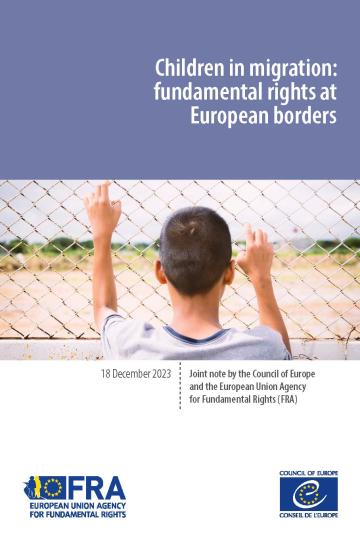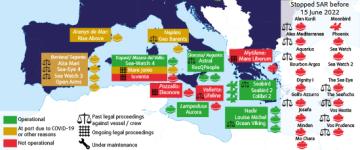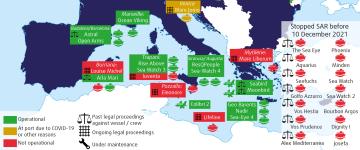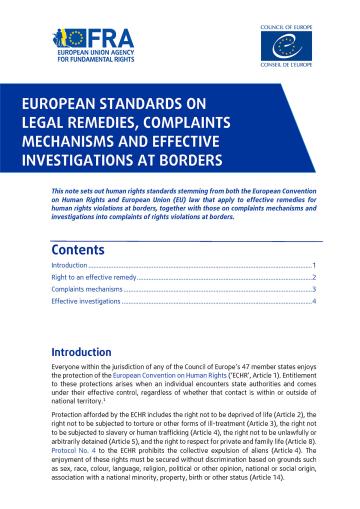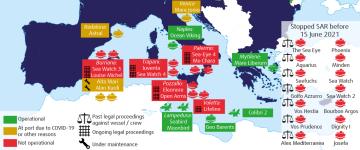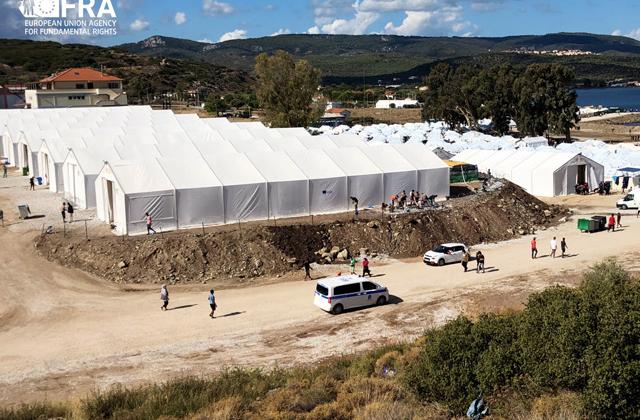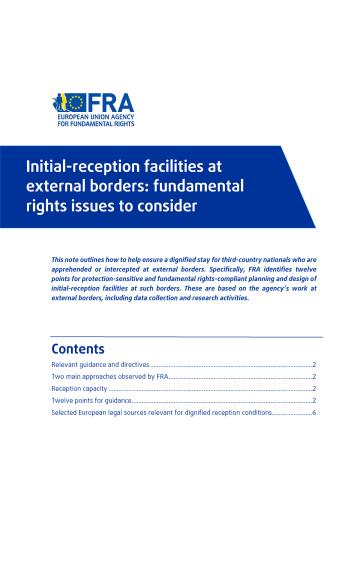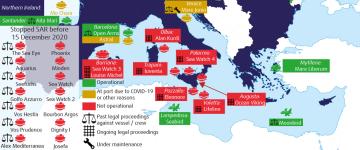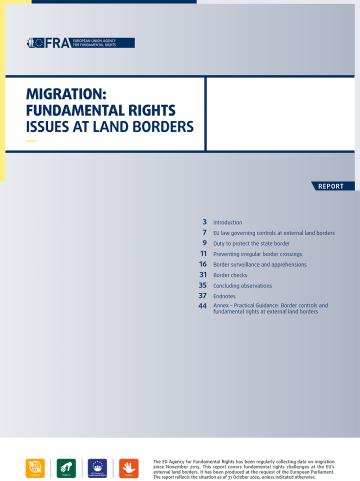Σύνορα και συστήματα πληροφοριών
Highlights
- Handbook / Guide / Manual8October2025The Entry/Exit System (EES), launching in 2025, will register non-EU nationals crossing the EU’s external borders. This FRA guidance helps border guards apply the new rules in line with EU fundamental rights. It offers practical tips on informing people, collecting biometric data and supporting people with specific needs. Based on fieldwork at 10 border crossing points in 6 Member States, the guidance will ensure rights are respected under the new system. A separate guidance publication for managers accompanies this publication.
- Periodic updates / Series20June2025The EU Agency for Fundamental Rights regularly collects data on the operations of NGO vessels involved in search and rescue in the Mediterranean. This includes any legal proceedings against them, as well as any difficulties in disembarking migrants in safe ports. This paper provides an overview of criminal investigations and other legal proceedings initiated by European Union (EU) Member States against civil society organisations deploying search and rescue vessels and aircraft in the Mediterranean and/or against individual crew members. The latest update covers the period from 2018 up until 1 June 2025.
- Handbook / Guide / Manual19September2024Η παρούσα πρακτική καθοδήγηση έχει ως στόχο να βοηθήσει τα κράτη μέλη της ΕΕ να δημιουργήσουν ή να ορίσουν εθνικούς ανεξάρτητους μηχανισμούς για την παρακολούθηση της τήρησης των θεμελιωδών δικαιωμάτων κατά τον έλεγχο διαλογής των υπηκόων τρίτων χωρών και κατά την εξέταση των αιτήσεων ασύλου στο πλαίσιο των διαδικασιών στα σύνορα.
- Report / Paper / Summary30July2024Fundamental rights violations on the EU’s land and sea borders often go unreported. Investigations into these violations need to be more effective. This report gathers examples of alleged rights violations of migrants and refugees between 2020 and 2023. It sets out 10 steps to promote prompt and effective national investigations into incidents of ill-treatment at borders.







